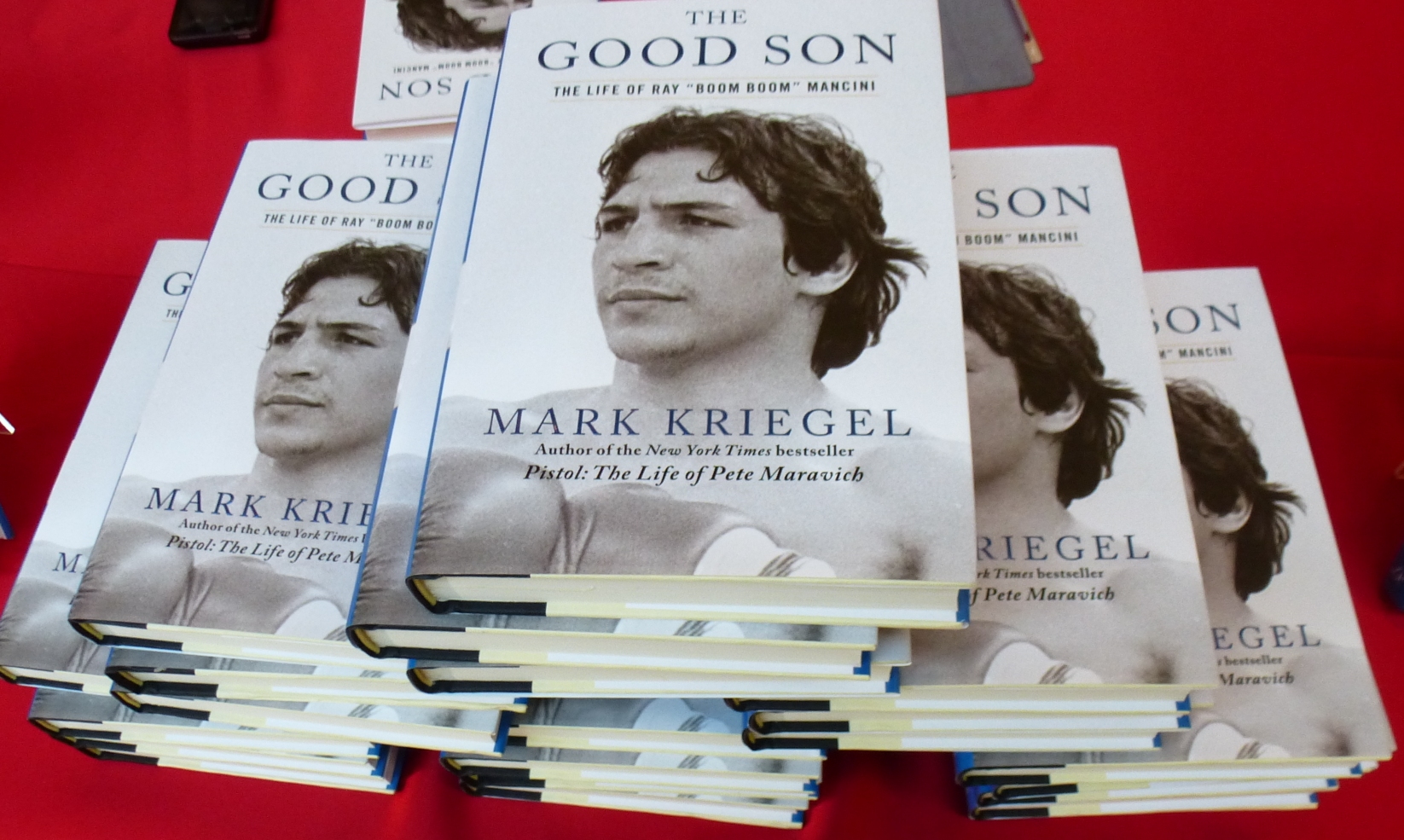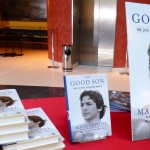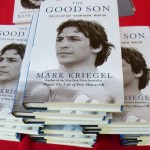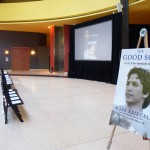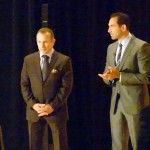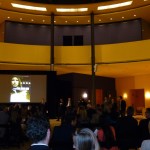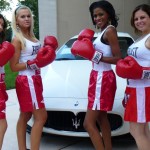“The Good Son”, a new documentary on the life of Ray “Boom Boom” Mancini, premiered in Washington D.C. on Thursday, September 21, at the Italian Embassy.
The premiere was hosted by Fight For Children, as the organization kicked off its annual Fight Night charity boxing event, to be held this November. Luminaries were in attendance at the premiere, including the Italian Ambassador, Claudio Bisogniero, and Mancini himself.
The movie is based on the book of the same name, written by Mark Kriegel, who has also written biographies of Pete Maravich and Joe Namath. For Kriegel, the hook of the story is the enduring bond between fathers and sons. Mancini’s story though is about much more — it’s about life and loss, inspiration and heartbreak.
Ray grew up idolizing his father Lenny, the original “Boom Boom,” a boxer on the cusp of winning a championship when duty called him to World War II. While he continued his boxing career after the war, the shrapnel implanted into his body by a German mortar shell ensured that he would never reach his dream.
For Ray, a picture of his father following a fight, eye swollen shut, mouth bloodied and bruised, exhausted in victory, would epitomize heroism, pride and honor.
“That picture was beautiful, it’s all I ever wanted to be,” Mancini says. It gave him his calling in life: to win the championship that his father never could.
After seeing that photo, Mancini always knew he would follow in his father’s footsteps, even against his own wishes, and become a professional boxer. Lenny had fought out of need, Ray would fight out of love and desire.
Mancini was raised on the rough streets of Youngstown, Ohio, the battered and beaten city which carved his personality as much as his battered and beaten father had.
Gifted athletically, although small in stature, Ray passed on potential scholarship opportunities in other sports. He preferred to cut weight in order to continue boxing, as opposed to bulking up to better help his frame survive the rigors of high school football, or focus solely on baseball.
A young Mancini followed his older brother, also named Lenny, to the Youngstown Navy Reserve gymnasium, walked up to trainer Eddie Sullivan and told him plainly, “Mr. Sullivan, one day I’m going to come in and be the best fighter you ever had.”
Of course, that would eventually prove itself true and Ray would go on to win his title, although it wasn’t always a smooth ascent. Ray had turned his back on Youngstown’s world of mafia-influenced crime, where over a 10-year period 82 car bombings occurred. Fueled by staggering levels of unemployment as the local mills failed, Youngstown earned nicknames in the national press such as “Murdertown” and “Crimetown USA.”
But his brother chose a different path. The circumstances remain murky decades later, but ultimately this is what led to Lenny’s death, shot in the back of the head in a hotel room. It would be the first, but not only, death which impacted Ray’s burgeoning professional career.
Ray was a star in the making right from the start, and it wasn’t long before he was being featured on nationally televised fight cards. The boyish good looks and charm, The Great White Hope from the forgotten steel city of Youngstown, the insatiable brawler and battler. He had it all.
At the age of 20, Mancini challenged the legendary Alexis Arguello for his WBC Lightweight crown. Mancini fought bravely, too bravely, and lost a brutal 14-round war.
Just six months later though, he got his second shot, and he wouldn’t let this one pass him by. He KO’d WBA titleholder Arturo Frias at 2:54 of Round 1 to become the champion he was always destined to be.
After making one title defense, Ray was on top of the world. But he never could have imagined the way his life would change following his next title defense against South Korean boxer Duk Koo Kim, on November 13, 1982.
Mancini scored a KO win in a grueling 14-round affair, at one point throwing 44 unanswered punches, before forcing the referee to stop the bout after a knockdown. Kim died four days later from injuries suffered in the bout. Like Mancini against Arguello, Kim fought too bravely for his own good. Here though, it would prove to be a fatal mistake.
Surprisingly, Mancini was back in the ring just three months later in a non-title fight, although he looked decidedly unlike the bundle of sheer aggression and power he had been. He won a decision, then stopped undefeated challenger Orlando Romero, fought another non-title contest, and then famously kayoed Bobby Chacon in January 1984, stopping him in three rounds. It would be the last win of Ray’s career.
He lost his title to Livingstone Bramble in his next fight, the fateful moment again proving to be the 14th round. He dropped a tight decision to Bramble in the rematch, and then retired. He would come back four years later, losing to Hector Camacho in 1989, and another three years after that, losing to Greg Haugen in 1992.
While the documentary and the book continue through the end of Ray’s career, the culmination of the story is the touching meeting between Mancini and Jiwan Kim, Duk Koo’s son, who was born after his death. His fiancée was pregnant with Jiwan when his fight against Mancini took place.
Ray carried a near unbearable load of guilt for Kim’s death, and for the effect it had on his family. But by meeting each other, both Mancini and Jiwan were able to find some much needed closure and healing.
“The Good Son” tells this story with narration from Mancini, Kriegel and the Kim family, along with archival footage and interviews with a star-studded cast that included Sugar Ray Leonard, Bob Arum, and actors Mickey Rourke and fellow Youngstown native, Ed O’Neill.
Tragedy and triumph; heartbreak and inspiration; fathers and sons. It’s the unforgettable story of Boom Boom Mancini.
This article was first published by Jake Emen on Yahoo News, September 21, 2012

